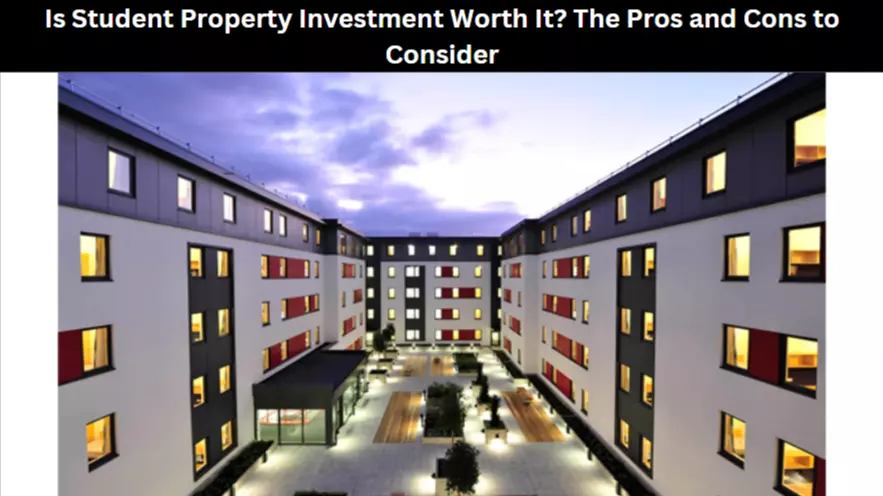Investing in student property has become increasingly popular in recent years, with many investors seeing it as a lucrative and relatively low-risk investment opportunity.
However, like any investment, there are both pros and cons to investing in student property and it is important to be aware of some of the shortfalls.
In this article, we will explore the various advantages and disadvantages to help you make an informed decision – so for those wondering if investing in student property is a good idea you may want to keep on reading!
Pros of Investing in Student Property:
High rental yields: One of the biggest advantages of investing in student property is the potential for high rental yields.
Student accommodation can often generate higher rental income compared to traditional rental properties due to the high demand for student housing in popular university cities.
According to a report by Knight Frank, student accommodation investments in the UK delivered an average gross rental yield of 5.8% in 2021, compared to the 3-4% typically seen in the residential buy-to-let market.
High demand: The demand for student housing is largely driven by the increasing number of students seeking higher education.
In the UK, for example, 2022 saw the highest intake of students on record with 425,830 taking up a place, and this number is expected to continue to rise. This means that there will always be a steady stream of demand for student accommodation, particularly in popular university cities.
Lower void periods: Another advantage of investing in student property is the potential for lower void periods.
Due to the high demand for student housing, properties tend to be occupied for the majority of the academic year, which means that landlords can enjoy a relatively consistent stream of rental income.
Multiple tenants: Student accommodation is often let on a shared basis, which means that there can be multiple tenants in one property.
This can be advantageous for landlords as it means that there are multiple income streams from one property, which can help to spread the risk and reduce the impact of any void periods.
Long-term investment: Investing in student property can also be a long-term investment opportunity.
The demand for student accommodation is likely to continue to rise as the number of students seeking higher education increases, which means that investors can benefit from a steady stream of rental income over an extended period of time.
Cons of Investing in Student Property:
Seasonal demand: One of the main disadvantages of investing in student property is that the demand is largely seasonal.
Students tend to occupy properties for the academic year, which means that there can be significant void periods during the summer months when students return home.
This can result in a loss of income for landlords and can make it difficult to maintain consistent cash flow.
High turnover of tenants: Another disadvantage of investing in student property is the high turnover of tenants.
Students tend to move around frequently, particularly in their early years of study, which means that landlords may need to spend more time and money on finding new tenants and carrying out maintenance work between tenancies.
Higher maintenance costs: Student accommodation tends to experience higher wear and tear compared to traditional rental properties due to the high turnover of tenants and the nature of student living.
This means that landlords may need to spend more money on maintenance and repairs, which can eat into their profits.
Regulatory requirements: There are a number of regulatory requirements that landlords need to comply with when letting student accommodation, such as health and safety regulations and compliance with local licensing requirements.
This can be a complex and time-consuming process, particularly for first-time investors, and failure to comply with regulations can result in fines or legal action.
Higher upfront costs: Investing in student property can require a significant upfront investment, particularly if you are looking to purchase a property outright.
In addition to the purchase price, landlords may also need to spend money on refurbishing and furnishing the property to a high standard in order to attract tenants.
Should I Invest?
Remember when it comes to investing each individual investors need will vary so it is important to consider what will work best for you.
It is always important to consult a financial expert or solicitor who can guide you in a personalised matter and help make your property investment journey run as smoothly as possible.
